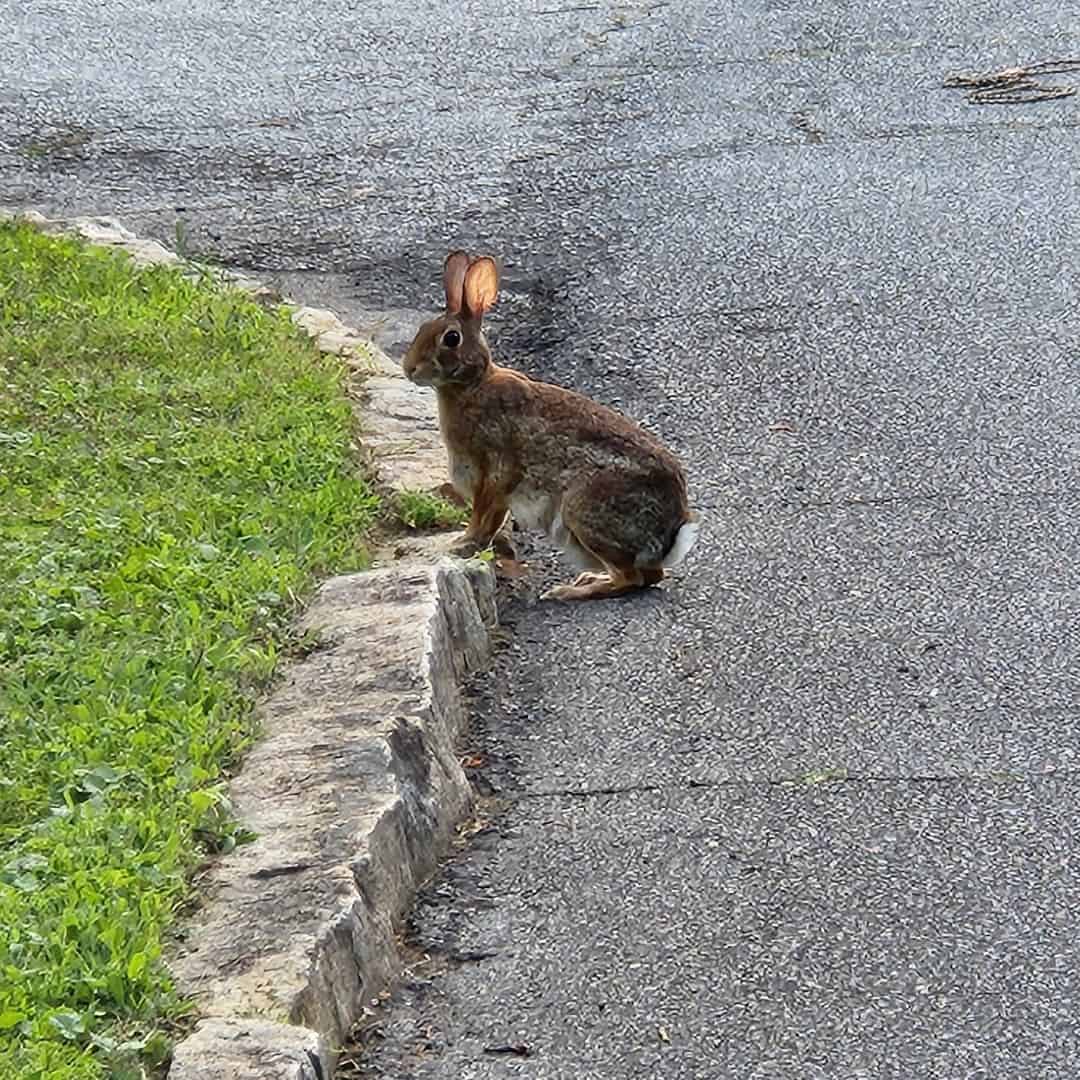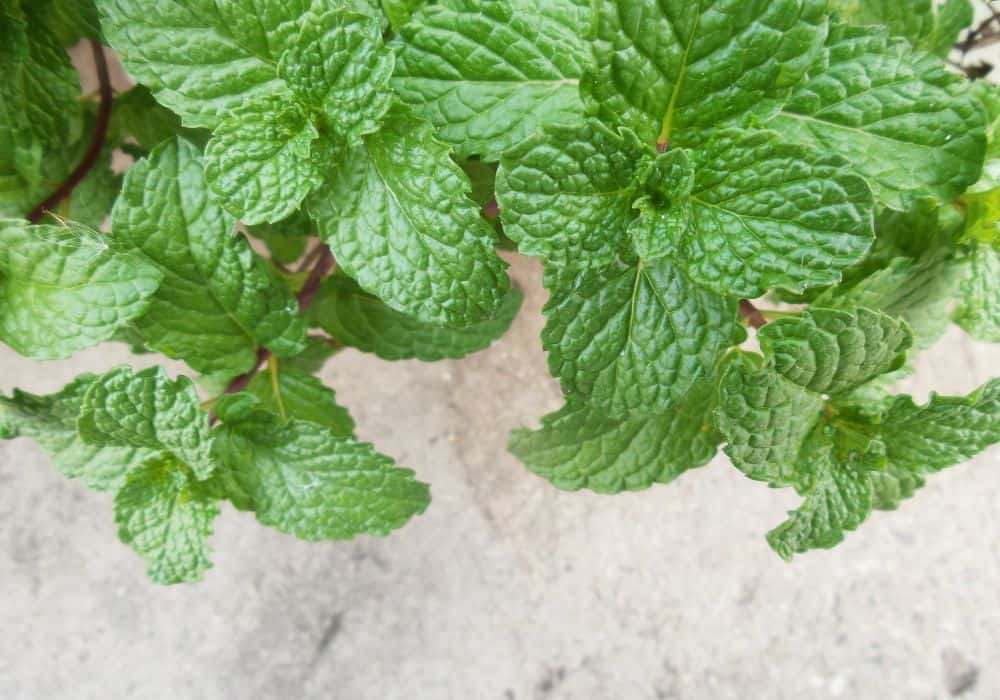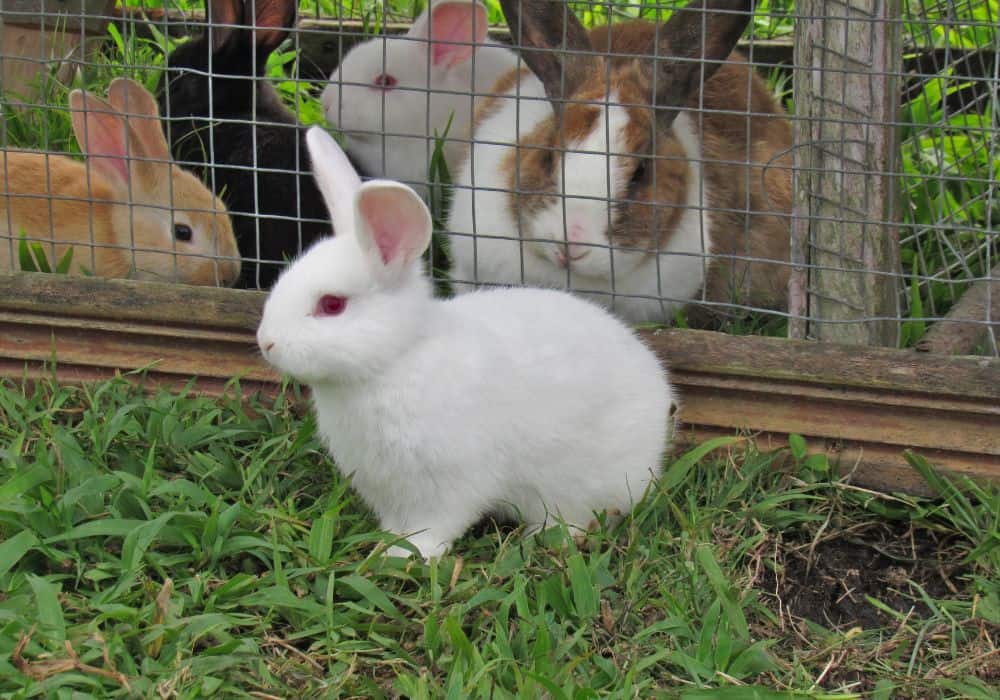Rabbits have a keen sense of smell that is 20 times more effective than humans. They develop this unique trait when they are still young and it plays a vital role in their lives.
Using their noses, rabbits can detect and distinguish several scents in their environment. These fluffy creatures can sniff out fresh vegetation and pick out food sources, even when they are well hidden.
While this highly developed sense of smell is advantageous, it’s not without some downsides. Rabbits have extremely sensitive noses and nasal membranes. As a result, they are highly sensitive to certain scents like chili powders and black pepper.
This is good news for homeowners who want to get rid of these animals from their gardens or property.
Sure! Rabbits might look cute, but they can cause significant damage to your backyard, eating nearly all your cherished plants. Therefore, having an effective way to keep this animal away from your backyard is a win.
Fortunately, this guide explores various scents rabbits can’t stand to help protect your property from these invaders.
What Damages Do Rabbits Cause?
With their unquenchable appetites and insistent chewing, rabbits can cause a ton of problems for homeowners.
Since they are voracious herbivores, rabbits mainly focus on satisfying their hunger. Because of this, they can infiltrate gardens consuming shoots, leaves, and buds of tender young plants. They can also lay waste on your vegetables, ornamental plants, fruits, and flowers.
And their trail of destruction doesn’t stop there. Rabbits have a habit of gnawing and scratching tree bark. This holds especially during winter when there are limited sources of food.
That means they can decimate orchard trees, landscape shrubs, and woody plants. The bunnies often clip off branches, stems, and buds of trees, leaving a trail of destruction on your property.
Additionally, rabbits can chew the electric wires of a building, exposing you to the risk of fire caused by naked cables.
Bunnies can also damage the walls and burrow underneath buildings, roads, and other construction. By doing so, they can weaken the structure and stability of the construction, posing a danger to inhabitants.
Given that rabbits prefer to graze on native vegetation rather than exotic plants. They can inhibit the regeneration of sensitive trees and plant species and increase the growth of weeds.
Besides that, rabbits can spread diseases more rapidly than most wild animals. They can quickly adapt and survive while carrying illness and pass it on to other animals without being affected.
Therefore, keeping the rabbits off your vegetable garden, orchards, farming area, and construction is vital. And what better way to do that than using their olfactory prowess against them?
What Kinds of Smells Do Rabbits Hate?

Image Credit: epilogical
Now that we understand the problems rabbits cause, let’s discover the various scents you can use to repel them. As it turns out, some aromas are like kryptonite to our furry mates. Below, we have highlighted a few.
1. Garlic
Garlic has a strong scent that rabbits dislike. So, you can use the overpowering scent of garlic or onions to repel these invasive animals.
Simply prepare a solution of water and garlic powder (3 tablespoons). Boil the mixture for 10 minutes and let it cool down.
Pour the solution into a spray bottle and apply it to the leaves and stems of plants in your garden every week.
The solution is harmless to humans but it’s effective at keeping the bunnies away. But remember to thoroughly wash your vegetable and fruits to remove the garlic scent before consuming them.
2. Lavender
The lavender plants are perennial shrubs with leathery leaves and a strong fragrance. The lavender’s scent irritates the bunnies and keeps them away.
For the best results, strategically plant them along the perimeter fence to deter any rabbit from invading your area.
3. Cayenne Pepper
Bunnies have an aversion to the smell of cayenne pepper. Just sprinkle the grounded spice around your garden or lawn to send the nibbling nuisances running. However, don’t apply the crushed pepper on sensitive leaves, as they might die.
You can also place the cayenne pepper inside small sachets and scatter them along the perimeter of your garden.
Additionally, you can prepare the liquid repellent by mixing a quarter cup of cayenne pepper; detergent, and egg whites in two cups of water.
Blend the solution and pour it through a cheesecloth to remove insoluble materials. Let the mixture of old down for 12 hours before putting it in the sprayer.
Spray the mixture on the targeted area to repel rabbits and other animals like deer and squirrels. To maintain the effectiveness of the scent, spray the area occasionally.
4. Pepper Mint

You can use the peppermint plant or its essential oil as a rabbit repellant. The bunnies hate the scent of peppermint, but they can still eat the plant if the odor is not very strong.
Apply the peppermint essential oil on cotton balls and place them around the plant – the rabbits will keep off.
5. Red Pepper
Red pepper contains capsaicin, which has a burning sensation. Prepare a mixture of red pepper repellant by using the following ingredients:
- Six units of red pepper
- 2 cups of water
- One tablespoon of liquid Castile soap
- Two tablespoons of olive oil
Mix these ingredients in one gallon of water, then pour the solution into a spray bottle. Spray the mixture every week on your garden plants to deter the bunnies.
6. Coyote Urine
The mere sight of a predator is enough to place rabbits on high alert. So, you can use predator scents like coyote urine and fox urine to create an illusion of danger. As a result, rabbits, raccoons, and deer will keep away from your property.
Shop for predator urine in your local garden store and apply it on access routes used by rabbits and around the garden.
7. Sulfur
Carefully sprinkle dried sulfur around areas you want to avoid the rabbits from invading. Sulfur usually exudes a rotten egg odor that can irritate the rabbit’s nose and send them running.
Sadly, you cannot use sulfur near areas with human habitats because the smell is unbearable, even to humans.
8. Ivory Soap
Ivory soap can make an effective rabbit repellent. Like Irish spring soap, this soap has a strong, thanks to its active ingredient – sodium tallowate.
To use the soap, grate it into small pieces and sprinkle them over the plants. Also, you can cut the bar soap into 4-8 chunks and put them in a burlap bag.
Hang the bag in your garden or put them on the ground, about 5-10 feet apart, to be more effective. The Burlap bag method makes the odor last longer.
9. Citrus

You can deter rabbits by making a mixture of citrus and water. Since rabbits hate citrus, spray the solution on the garden, orchard, and areas you want to keep safe from the animals.
10. Wax Begonias
When planted on farm beds and garden borders, wax begonias are effective in deterring rabbits. These annuals have waxy leaves that rabbits hate. They are also poisonous.
11. Linseed Oil
A mixture of linseed, dish detergent, and water can help you keep the rabbits away.
When preparing the mixture, ensure the linseed oil makes up 85% of the solution for the best results. The concoction will have a sticky texture and a foul odor that repels bunnies.
12. Vinegar
Vinegar is also quite effective at repelling rabbits. Simply put some vinegar on containers and place them strategically around the garden.
Alternatively, soak cotton balls or old corn cobs in vinegar and place them all around the site you want to protect.
Additional Tips to Help Keep the Rabbits Away
- To ensure the rabbit repellents remain effective, you need to keep the odor fresh and potent. This involves establishing a schedule to spray the solution. Remember, heavy rainfall can wash off the repellants and strong winds can dissipate the odor. As a result, they can reduce their effectiveness. Luckily, you can counteract this by modifying your schedule to include regular applications. This allows you to maintain a heavy scent that will repel rabbits and protect your property.
- Rabbits can adapt quickly to new odors. So, it helps to change the scents occasionally for maximum effectiveness.
- Besides repellants, you can make use of chicken wires through two approaches. The first one, lay the wire over your plants, creating a physical barrier rabbits can’t penetrate. Second, encircle your plants with chicken wire, forming a circular enclosure. Ensure it’s tall enough, as rabbits can jump over it. Both methods keep your plants safe inside and rabbits out.
- Install an electric fence along the perimeter to keep the rabbits away. The fence will deliver a harmless but startling shock whenever the animals touch it. But remembers bunnies are super diggers and can decide to go underground and access your garden. For the best result, pair the fence with predator scents and underground barriers.
- Some scents are unpleasant to humans; hence, you can’t apply them in human habitats, regardless of their effectiveness—for example, sulfur and sometimes coyote urine.
Conclusion
Rabbits might look innocent, but behind their floppy ears lie mischievous creatures with the potential for destruction. They are so effective at raiding gardens and destroying natural vegetation. All thanks to their powerful senses of smell that put bloodhounds to shame.
Needless to say, this is also their biggest weakness. Using certain aromas like mint, lavender, citrus, and lavender, you can repel these long-eared friends. Just ensure the scents are safe for both parties.
We hope this knowledge helps you reclaim your territory and establish dominance over mischievous rabbits.
If you have any queries, let us know in the comment section!
